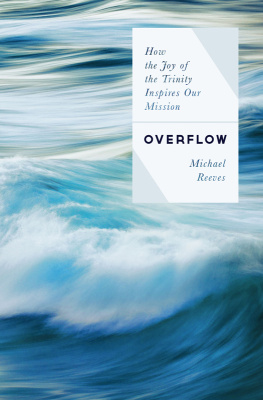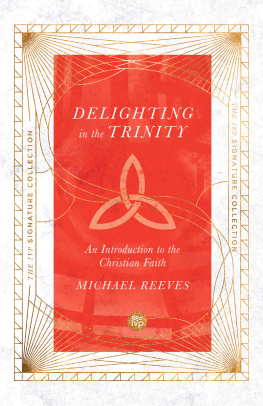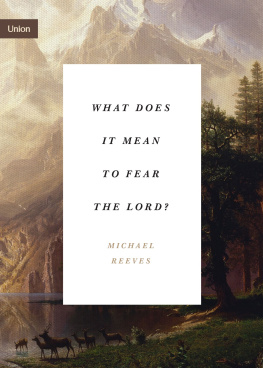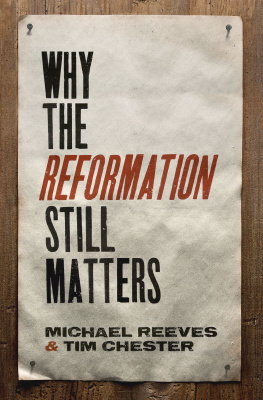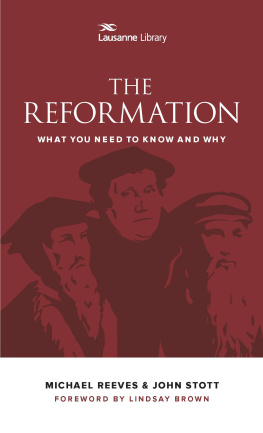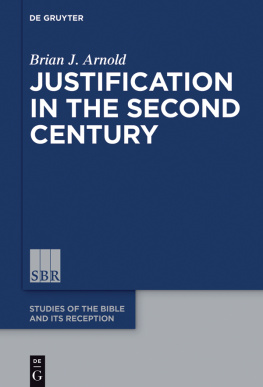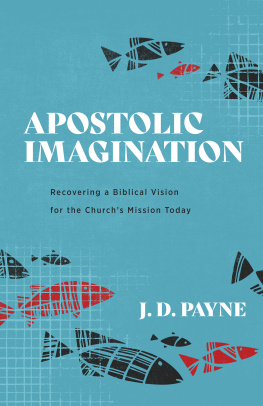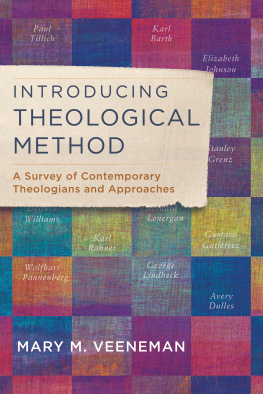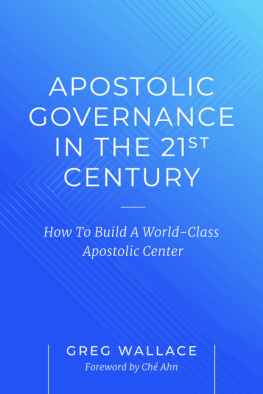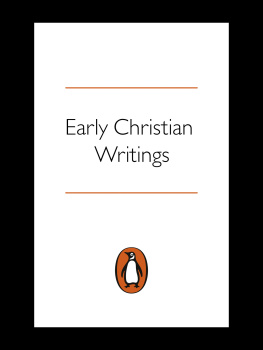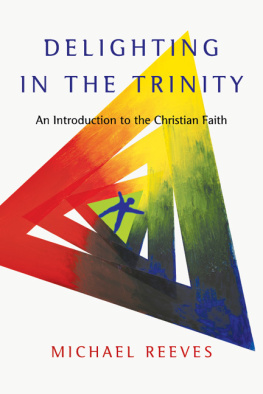Michael Reeves - Introducing Major Theologians: From the Apostolic Fathers to the Twentieth Century
Here you can read online Michael Reeves - Introducing Major Theologians: From the Apostolic Fathers to the Twentieth Century full text of the book (entire story) in english for free. Download pdf and epub, get meaning, cover and reviews about this ebook. year: 2015, publisher: IVP, genre: Religion. Description of the work, (preface) as well as reviews are available. Best literature library LitArk.com created for fans of good reading and offers a wide selection of genres:
Romance novel
Science fiction
Adventure
Detective
Science
History
Home and family
Prose
Art
Politics
Computer
Non-fiction
Religion
Business
Children
Humor
Choose a favorite category and find really read worthwhile books. Enjoy immersion in the world of imagination, feel the emotions of the characters or learn something new for yourself, make an fascinating discovery.

- Book:Introducing Major Theologians: From the Apostolic Fathers to the Twentieth Century
- Author:
- Publisher:IVP
- Genre:
- Year:2015
- Rating:3 / 5
- Favourites:Add to favourites
- Your mark:
- 60
- 1
- 2
- 3
- 4
- 5
Introducing Major Theologians: From the Apostolic Fathers to the Twentieth Century: summary, description and annotation
We offer to read an annotation, description, summary or preface (depends on what the author of the book "Introducing Major Theologians: From the Apostolic Fathers to the Twentieth Century" wrote himself). If you haven't found the necessary information about the book — write in the comments, we will try to find it.
Introducing Major Theologians: From the Apostolic Fathers to the Twentieth Century — read online for free the complete book (whole text) full work
Below is the text of the book, divided by pages. System saving the place of the last page read, allows you to conveniently read the book "Introducing Major Theologians: From the Apostolic Fathers to the Twentieth Century" online for free, without having to search again every time where you left off. Put a bookmark, and you can go to the page where you finished reading at any time.
Font size:
Interval:
Bookmark:
- C. S. Lewis, Studies in Medieval and Renaissance Literature (Cambridge: Cambridge University Press, 1966), p. 138.)
- C. S. Lewis, Introduction to On the Incarnation by Athanasius (London: Centenary, 1944; repr. Crestwood, N. Y.: SVS, 1998), p. 5.
- Ibid., pp. 45.
- Ibid., p. 8.
- Eusebius, Church History 3.39; quoted from Nicene and Post-Nicene Fathers , Second Series, tr. P. Schaff and H. Wace, 14 vols. (Grand Rapids: Eerdmans, 19869).
- A fragment of Papias Exposition of the Sayings of the Lord , cited by Apollinaris of Laodicea.
- 1 Clement 42.
- Ibid. 44.3. All Apostolic Fathers quotations from here on are from Michael Holmess translation, The Apostolic Fathers in English , 3rd ed. (Grand Rapids: Baker, 2006).
- Bart Ehrman is perhaps the foremost exponent of this view today.
- 2 Clement 2.4.
- B. M. Metzger, The Canon of the New Testament: Its Origin, Development, and Significance (Oxford: Clarendon, 1987), p. 44.
- Magnesians 7.1; Smyrnaeans 8.2. Quotations are taken from Holmes, Apostolic Fathers in English .
- Ephesians 6.1; cf. Trallians 3.1; Ephesians 5.3; Smyrnaeans 6.2.
- Ephesians 1.1; cf. Romans 6.3.
- Trallians 10.1; cf. Smyrnaeans 4.2.
- Ephesians 7.2.
- Magnesians 8.12; cf. 9.2.
- Philadelphians 9.1.
- Romans 4.1; 5.3.
- Ibid. 7.2.
- Ibid. 6.3.
- Philippians 11.1.
- Ibid. 6.3 7.1.
- Ibid. 11.4; 7.1.
- Martyrdom 4.
- Ibid. 9.3.
- This happened during the reigns of the emperors Nero (5468), Trajan (98117), Marcus Aurelius (16180), Septimius Severus (193211), Maximian (235), Decius and Valerian (24960) and Diocletian and Galerian (30313).
- Tertullian, Apology 40.
- Didache 11.56.
- Hermas 1.7.
- Ibid. 2.1.
- Ibid. 921.
- Ibid. 29.8; 31.17.
- Ibid. 13.5; 14.57.
- Ibid. 36.1, 10.
- Ibid. 42.12.
- Ibid. 56.23.
- Article 14 of the Church of Englands Thirty-Nine Articles, for example, reads, Voluntary Works besides, over and above, Gods Commandments, which they call Works of Supererogation, cannot be taught without arrogancy and impiety: for by them men do declare, that they do not only render unto God as much as they are bound to do, but that they do more for his sake, than of bounden duty is required: whereas Christ saith plainly, When ye have done all that are commanded to you, say, We are unprofitable servants.
- Hermas 69.2.
- The manuscript fared little better later on; having been transcribed, it was destroyed when the library of Strasbourg, where it had been deposited, was bombed in 1870.
- A fragment from the apology of Quadratus, preserved for us by Eusebius ( Church History 4.3.12), is sometimes included in the collection of the Apostolic Fathers. Some scholars believe that the fragment should be fitted into a gap that exists in the text of the Letter to Diognetus .
- Diognetus 2.5.
- Ibid. 3.5.
- Ibid. 9.25.
- Ibid. 6.
- Ibid. 10.8.
- For a helpful discussion of how this principle functioned in the wider church at the time, see Gerald Bray, Creeds, Councils and Christ , 2nd ed. (Fearn: Mentor, 1997), pp. 4954.
- Barnabas 9.7.
- Ibid. 12.56.
- Ibid. 12.8.
- Ibid. 16.
- Ibid. 18.12; 9.4.
- It was common for theologians of the early post-apostolic church to speak of deification as a key aspect of Christian salvation. Quite different things could be meant by it. For theologians of the second century, though, deification was normally seen as being roughly synonymous with adoption; that is, through the Spirit, Christians are made sons of the Most High in the Firstborn Son, Christ (cf. Dialogue with Trypho 124). In this way, Christians can be said to enter the eternal fellowship of the Father, Son and Spirit.
- 1 Apology 41. No extant Hebrew manuscript has the words from the tree in Psalm 96:10, though it seems unlikely that Justins argument came from a mere slip of memory (he repeats the claim in his Dialogue with Trypho 73). A number of other theologians from the first five centuries AD also believed that Psalm 96:10 should read the Lord has reigned from the tree (cf. Tertullian, An Answer to the Jews 10, 13; Five Books Against Marcion 3.19; Augustine, Comment on Ps. 96). Two manuscripts of the Psalms in Greek (the Septuagint) have the words, and the equivalent words are also found in the Coptic Sahidic translation of the Psalms probably made in the middle of the third century AD . The words also appear in some copies of the Old Latin translation, the version used by the churches in the West before Jerome made the Latin Vulgate, used by Tertullian and Augustine. It seems most likely, then, that Justin was using a Greek version of the Psalms.
- 1 Apology 59.
- Ibid. 69. Justins argument here may seem very alien to us today; however, it is becoming relevant again as the old accusation resurfaces that Christianity has stolen its ideas from older sources. Rob Bell mentions precisely this example of Bacchus/Dionysus when he asks if, hypothetically, the virgin birth was really just a bit of mythologizing the Gospel writers threw in to appeal to the followers of the Mithra and Dionysian religious cults that were hugely popular at the time of Jesus, whose gods had virgin births ( Velvet Elvis: Repainting the Christian Faith [Grand Rapids: Zondervan, 2005], p. 26). For Justin, the answer is simple: Christianity and the promise of a virgin birth is older than the Mithra and Dionysian cults; if anything, they stole from Christianity, not vice versa.
- 2 Apology 10; cf. 1 Apology 46.
- It is sometimes suggested that Justin was unable to distinguish the Son from the Spirit properly. This is almost certainly unfair, and due partly to his willingness to speak of the eternal Word as a spirit, and partly to the fact that, for instance, he believed that the holy spirit that descended on Mary in Luke 1:35 was the Word ( 1 Apology 33). Yet he never fails to differentiate between that spirit and the Spirit.
- Dialogue 8.
- Ibid. 38.
- Ibid. 56.
- Ibid. 62.
- Ibid. 75.
- Ibid. 89.
- Ibid. 8081.
- Ibid. 123.
- Ibid. 114.
- Ibid. 134.
- Ibid. 126.
- Against Heresies 1.preface.3.
- E. Brunner, The Mediator: A Study of the Central Doctrine of The Christian Faith , tr. O. Wyon (London: Lutterworth, 1934), p. 262.
- However, the fact that Gnosticism never quite died out is one reason why Irenaeus remains relevant today. Irenaeus believed that Valentinus had managed to come up with the definitive heresy that summed up and encapsulated all heresies. If there is any truth to that, it should be no surprise that we live today in a culture increasingly fed on a diet of rewarmed Gnosticism (witness the essential Gnostic themes of Dan Browns The Da Vinci Code and Philip Pullmans His Dark Materials trilogy).
- Against Heresies 1.7.2; 3.11.3 (references to Against Heresies consist of three numbers, identifying the book, the chapter and the section, respectively).
- For centuries, without much other evidence left of what Gnosticism was like, people wondered how fair Irenaeus had been in his assessment of Gnosticism. Had he simply set up a straw man? Yet in 1945 a collection of Gnostic writings was found at Nag Hammadi in Egypt (the most famous being the so-called Gospel of Thomas ), giving an unprecedented insight into Gnostic teachings. Judging by these, most scholars now agree that Irenaeus was remarkably accurate in his description of Gnosticism.
- Cf. Against Heresies 3.12.9. This sola Scriptura principle at the heart of Irenaeus theology gives the lie to the misconception that Irenaeus gave a higher authority to apostolic succession and tradition than he did to Scripture. He did value the direct connection between the apostles and their successors, the bishops, in his day; however, that never served as a grid to force Scripture through, but as proof that the plain truth of Scripture had been preserved and not distorted by the church.
Font size:
Interval:
Bookmark:
Similar books «Introducing Major Theologians: From the Apostolic Fathers to the Twentieth Century»
Look at similar books to Introducing Major Theologians: From the Apostolic Fathers to the Twentieth Century. We have selected literature similar in name and meaning in the hope of providing readers with more options to find new, interesting, not yet read works.
Discussion, reviews of the book Introducing Major Theologians: From the Apostolic Fathers to the Twentieth Century and just readers' own opinions. Leave your comments, write what you think about the work, its meaning or the main characters. Specify what exactly you liked and what you didn't like, and why you think so.


